Last week, my father visited Las Vegas for a business trip. He recounts being evacuated out of the Mandalay Bay Hotel and being shunted along the street for hours.
BY ANDREJ FEHER
“We came back to our hotel on Saturday night, and I said to my colleague that I wanted to go out and do something. He responded by saying ‘Don’t worry, tomorrow we’ll show you something you’ll never forget.’ ”
When Henry Feher heard these words, he had no idea that within 24 hours, he would be evacuated from the Mandalay Bay Hotel, and shunted along the street for hours, looking for a place to stay.
Feher, 41, an IT technician, flew out to Las Vegas on Sept. 30, on a six-day business trip.
What started as a pleasant visit to the entertainment capital of the world turned ugly just a few days later, when Feher and a few colleagues of his returned to the hotel after a long day of conferences and meetings.
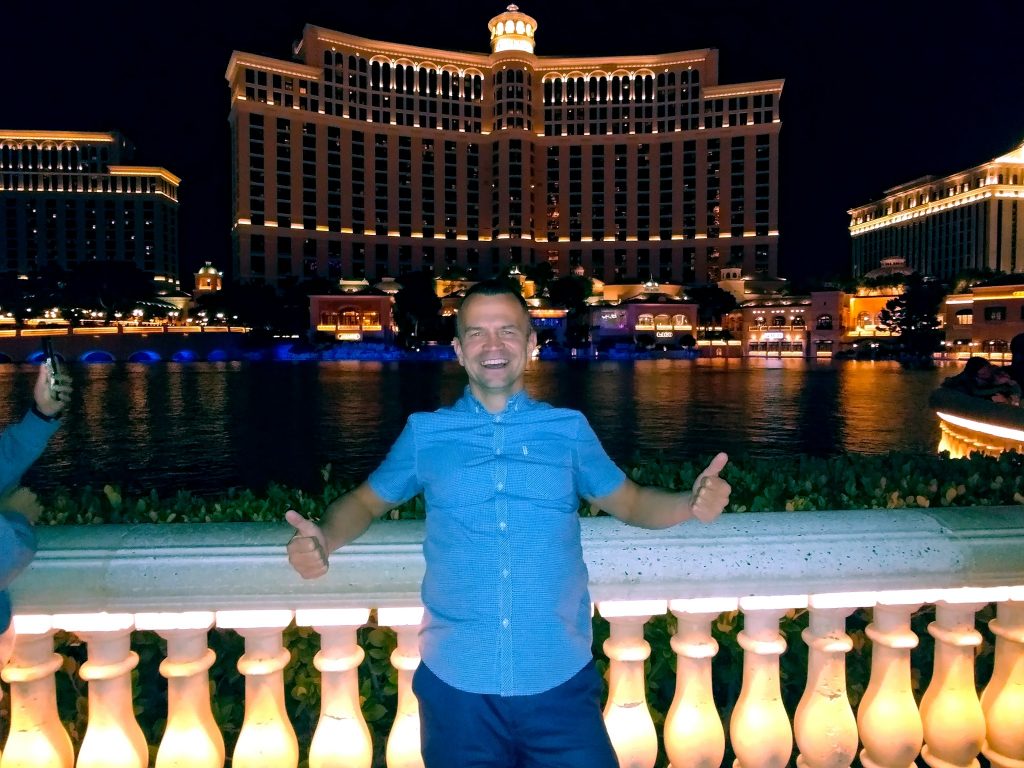
“We had just returned from a dinner, and after we got out of our taxi, we hung around in front of the lobby for a bit, where the taxis park, when we suddenly heard a loud noise,” he said. “We weren’t, at first, able to identify it. When we heard it a second time, a few people in our party said that it might have been gunfire, which made sense.”
What they wouldn’t find out, until much later, was that these were the sounds of Stephen Paddock firing into the crowd at a country music festival below, the deadliest shooting in modern U.S. history. The shooting left 58 dead and 527 wounded.
“We originally thought this was a mob fight,” said Feher. “This was our first time in Vegas. We didn’t know what to expect.”
“But then we looked up and saw gun smoke,” he added. “The actual shooting was happening on the opposite side of the hotel, so at first the smoke was all we saw. But then a few minutes later, we saw broken glass falling as well. This was from our side of the hotel.”
All of this went on for about 10 minutes, at which point Feher and his company began to hear the sound of ambulances in the distance.
“A security guard came up to us and sent us all inside, because it was dangerous outside,” said Feher. “In a couple of minutes, a second security guard approached us, and told us to go outside, because it was dangerous inside. So it was all very chaotic.”
By this time, the police had arrived, and they informed individuals in the area that they were to abandon the vicinity of the hotel. The company continued south along Las Vegas Boulevard, progressively shunted further down the Las Vegas Strip as police came along and closed more sections of the road.
“We continued like this for about three hours,” said Feher. “All of Las Vegas Boulevard was filled with police cars, ambulances. At around 2:30 in the morning, we came to a point where there were three buses parked, and we were ordered by police to board them, and they took us to Town Square.”
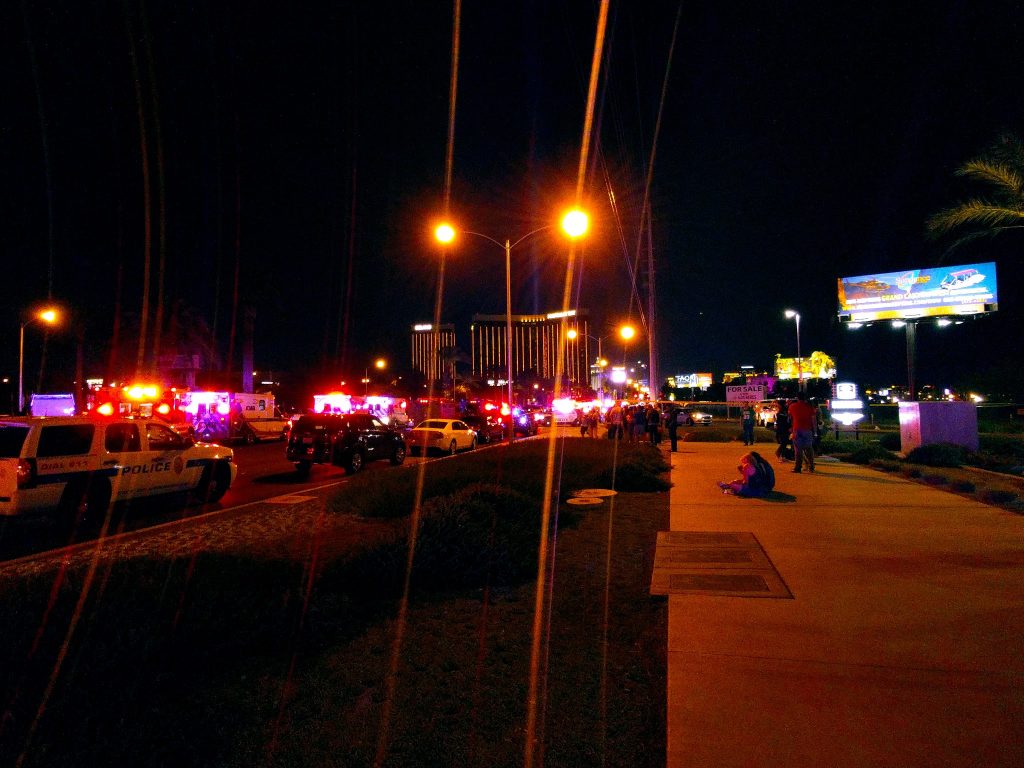
“Before we got there, we got in contact with some other people we went on the business trip with, and found the hotel they were staying at,” said Feher. “We found a taxi, and rode to that hotel. All the roads were closed, so we had to divert along the highway. The journey took us about half an hour.”
Their contact was still awake, and he let them into the hotel, which at this point was no longer under lockdown.
“In the morning, we had breakfast and returned to Mandalay Bay,” said Feher. “The hotel had reopened, but the atmosphere was terrible. That typical Las Vegas life – casinos, partying, that kind of stuff – had gone. There were very few people around, and it was all very subdued and sort of terrifying. Night clubs were closed for another three days.”
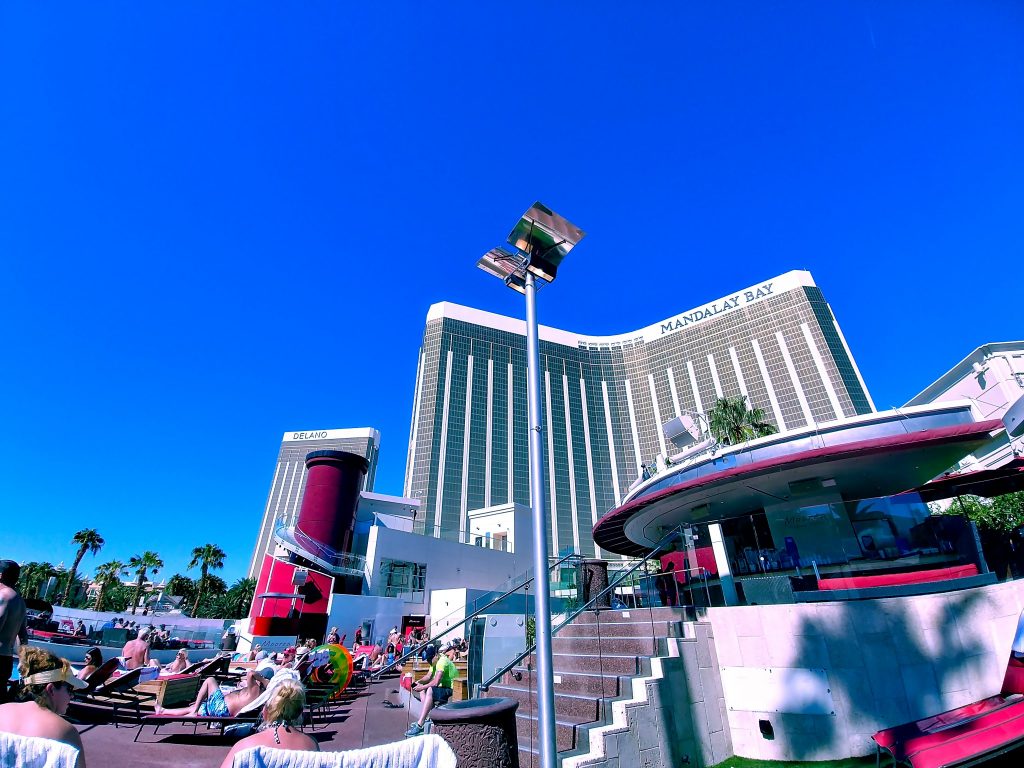
“I feel very fortunate that I wasn’t at the concert,” added Feher. “Seeing something like that could ruin you. We heard the gunshots, but we didn’t actually know what was going on, but imagine being at the concert. Even if nothing had happened to you, imagine the sight of the injured and dead. It must be horrible.”
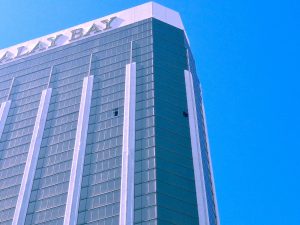
After returning to his hotel, Feher went for a walk, where he saw a tow truck removing one of the shooter’s suspected cars from an underground parking garage.
“One of the windows was broken in, and covered with police tape,” said Feher. “I had heard on the news that this was one of the cars that was suspected, and the description and license plate matched.”
The street was really narrow, and the tow truck struggled to pull out for about 15 minutes, according to Feher.
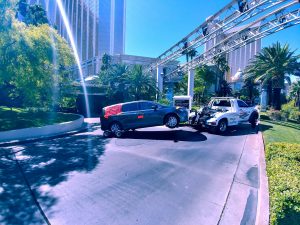
“At first, we doubted whether the conference would even continue,” said Feher. “A lot of people from our group returned home [after the shooting], so we went to the beach and wondered whether the conference would go ahead. It became clear in the afternoon that it would.”
“The worst part was going to dinner that night,” said Feher. “I was sitting there, in the restaurant, and looked out towards the hotel. I only then realized what had really gone on within those walls. It sunk in what horrible violence had gone on. It was terrible.”
